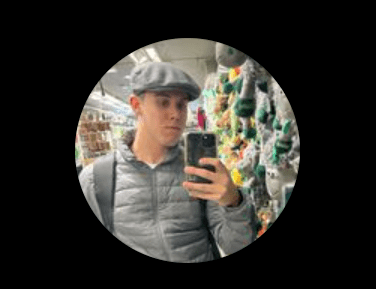On the 15th of April 2015, the government decriminalized ganja in Jamaica. The amended Dangerous Act states that possession of two-ounce or less of ganja is not an arrestable offense. However, an officer may issue a ticket of JA$500, and the person gets 30 days to pay at the tax office. It is similar to a traffic ticket.
Many people welcome this move, but some were skeptical; anything but full legalization is a disappointment.
Listening to Jamaica’s music, you would think ganja is indigenous to the island and grows like grass on every lawn. But thats, not the case; it is a band substance with a South Asia origin.
It came with Indian indentured servants who replaced African slave labor on the sugar plantations starting from 1845. The word ganja is Hindu, and its recorded use in Jamaica began when they arrived.
The Indian’s connection to Rastafarian and their use of the herb as a sacrament further solidifies this theory. But, it could have taken many other routes to the island.
Under British control, North America used hemp to make rope, paper, and lamp fluid in the 1600s. Also, Brazil in the 1500s had marijuana brought there by the Portuguese or enslaved Congolese . Ganja existed in the homeland of some Africans. Therefore it could have come with them during the slave trade.
. Ganja existed in the homeland of some Africans. Therefore it could have come with them during the slave trade.
Table of Contents
Jamaica, the face of ganja use
Jamaica is the face of ganja. Reggae music and Rastafarians the biggest promoter of its use. Although a small part of the Jamaican population, their popularity makes them a loud voice.
Bob Marley, Peter Tosh, and other reggae superstars often feature in the international media smoking herb. Some people’s first introduction to ganja is from lines in their favorite reggae tune talking its wonder. Not knowing the culture, it easy to picture Jamaica as a ganja utopia. However, thats not the case. The laws are not liberal; they are just as oppressive as most of the globe.
The majority of the island still has a conservative view on the smoking of ganja. Jamaica is not even in the top twenty consumers of weed. Of the 2.7 million inhabitants, only 7.2 percent use regularly based on a 2018 study.
It may be a surprise to some people that this plant was illegal on the island. Up to 2015, a joint in your possession could land you in jail. There are people on the island with a criminal record because the police caught them smoking a spliff.
Ganja’s decriminalization benefits business interests more than the citizens. It’s hard for the average person to get into the legal trade. Cultivating more than five plants, caught with more than two ounces, or selling the drugs without a license can land you in jail.
If you have fewer than two ounces, it is still up to the police discretion to give you a $500 ticket or not. An officer having a bad day could make your life difficult.
The Rastafarian community has a better deal than the general population; they can plant any amount for their religious sacrament. However, it comes with restrictions. They must use it at their place of worship.
Rastafarians do not have a centralized body and unlikely to register with the government because of the belief. So it will be difficult for them to prove their affiliation.
When did ganja in Jamaica become illegal?
Herb became illegal in Jamaica under the 1913 Ganja Law













With the rise of the Rastafarian movement lead by Lenard Howell, the laws became harsher in the 1940-the 60s. At the time, the movement leaders talked about revolutionary ideas that would undermine the colonial government and Jamaica’s ruling class. Fearing unrest amount the poor, they used ganja as a weapon to suppress the Rastafarian movement.
They used propaganda and misinformation to demonized rastas; they labeled them violent criminals. The police constantly terrorized them, cut their dreadlocks, and throwing them in jail for a few ounces of ganja. Sometimes after beating them severely.
An incident that stood out was the raid of Pinnacle Heights



























Jamaica did not act on its own to illegalize ganja; it was a part of an international collaboration to eliminate the drug. The fight against marijuana













The heavy-handed tactics used by the Jamaican government with the financial support of foreign powers are mild compared to action taken in other parts of the world throughout history. Egypt 1378 crackdown on ganja were brutal, entire villages destroyed, farmers’ tooth pulled out, and some even executed for planting the drug.
Ganja uses in Jamaica traditional medicine.
Ganja has always been a part of medicine since its discovery. The ancient world used it as a pain killer, anesthetic, diuretic, and many other applications.
It’s hard not to find a ganja plant in a rural home garden in jamaica. It is not that everyone smokes, but it is used for home remedies even by conservatives on the island. Often time combines with white rum Jamaica’s most popular spirit.
Every rural Jamaican home has a glass bottle with rum and ganja soaking, sometimes with ripe pimento. They use it to treat almost every common sickness, from cold to asthma.
Jamaican doctors created medicine derive from ganja.
Jamaican scientists made drugs using ganja to treat glaucoma and asthma. Professor Manley West and Dr.Albert Lockhart are the creators of Canasol













The inspiration for their research started after hearing fishermen in Portland, Jamaica saying they saw better at nights when they smoke ganja before heading out to sea. They went on a quest to prove this theory and help people with eye problems. Although not approved by the FDA, their products are highly rated globally and have little or no side effects on patients.
Ganja and tourist
Jamaica is known globally for producing some of the best ganja. So many people visit the island for a draw of the good sensimia. You might think the drug is easily accessible and available in every corner store, but thats, not the case.
Legal ganja is restrictive; there are only a few dispensaries on the island, mainly on the North coast. All thought decriminalize it is illegal to sell without a license. However, medical marijuana is legal, but patients will need a prescription from a medical practitioner in their home country to prove they need the drug for therapeutic purposes. Or they can sign a voluntary declaration to confirm this. Jamaica Ministry of Health issues the permit, and a fee is payable.
Cigarette smoking rules apply to ganja; you cannot smoke within 5 meters of public space. You can be ticketed













These are some legal ganja shops in Jamaica; Epican, Island Strains



















































































The illegal sale of ganja
Although illegal to sell without a license, you can still get ganja on the streets. It didn’t survive in Jamaica because people follow the rules. In some towns, people sell openly on the road; you can get two ounces of as little as JA$100. In the tourist area, they will offer to sell you weed but not openly. Expect to pay tourist prices, although cheaper than the dispensaries. Crime against tourists is low in Jamaica, but I wouldn’t advise you to go off with some random person to buy or smoke weed.
There are ganja farm tours on the island where you can visit farms and see how it is grown. You can also visit rasta village and see how they grow and use marijuana. The Jamaica Tourist Board does not approve not all tours.
Conclusion
The government decriminalized ganja in Jamaica and made it legal for medical use. You can purchase from a dispensary for therapeutic purposes, but you must have proof from a medical practitioner.
You are allowed to smoke in your private space and cultivate up to five trees. If you get caught with two ounces or less, you will pay a fine of JA $500. If you do not pay and are found guilty in court, you will get a criminal record, do community service, or pay a JA$2000 fine.
The laws are not as oppressive as before, but you need to and follow them because you can still get in trouble.


Jamal is the knowledgeable voice behind EDB Travel, bringing over 4 years of experience in travel writing and destination expertise. Holding a degree in Tourism Management, Jamal specializes in showcasing Jamaica’s rich culture, vibrant attractions, and hidden gems. His extensive background and local insights provide readers with valuable tips and in-depth guides to explore Jamaica like a pro. Follow Jamal on Pinterest and Instagram for the latest travel inspirations and updates.

